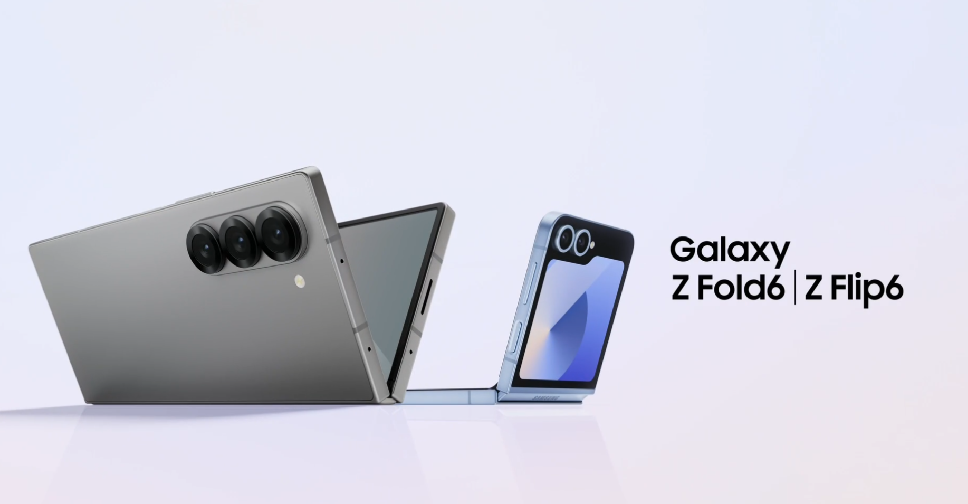
Samsung Electronics unveiled its latest foldable smartphones on Wednesday, making its priciest flagship model lighter and slimmer and bolstering AI functions as it challenges Apple's dominance in the premium market.
Samsung is also offering more sophisticated health monitoring functions to drive new demand for accessories such as its smartwatch, as well as a new ring for easy health monitoring and screen control.
The world's largest smartphone maker pioneered the foldable segment in 2019, but Wednesday's launch is crucial as Samsung's foldable phone shipment share fell from 81 per cent in 2022 to 63 per cent in 2023 with competitors surging into the market, according to data provider Canalys.
In response, Samsung made the wide Galaxy Z Fold 6 its lightest and slimmest ever to attract customers. The clamshell Galaxy Z Flip 6 has a longer battery life, higher resolution camera and a new vapour chamber to keep the phone cooler, reducing pain points discovered through customer interviews.
The company has priced the Z Flip 6 at $1,099.99, and the Z Fold 6 to start at $1,899.99, hiking prices by just $100 versus last year's model despite a steep jump in materials costs and after keeping launch prices the same for three years.
Samsung offers new AI functions including a "listening mode" that provides simultaneous interpretation by voice when paired with Galaxy Buds earphones.
It also worked with Alphabet's Google for new AI search functions, including showing a math problem's solution with all the steps when it is circled on the screen.
A slew of new health functions was added to its Galaxy Watch products, with new sensors and a 3-nanometre chip that tripled application booting and processing efficiencies versus last year's model.
It is now a US FDA-approved monitoring device for sleep apnea. It also provides measurements of a key cycling data called functional threshold power (FTP) for biking enthusiasts, and even measures a bio-marker related to diabetes called advanced glycation end-products (AGEs).
Samsung's bet that health monitoring will drive new demand culminates in the new Galaxy Ring, a product years in the making.
At $399, it is light at 3 grams (0.1 ounce) or less, able to be worn in the shower or while swimming, and can constantly monitor heart rate and stress levels as well as help control a Samsung phone's camera or alarm.
"Bringing AI-powered health and fitness features to wearables will be important to differentiate" Samsung from other smartwatch vendors, and is "core to attracting brand switchers in the premium segment," said Jack Leathem, Research Analyst at Canalys.
The products will be available starting July 24 in South Korea, North America and Europe.


 Nasdaq set to confirm bear market as Trump tariffs trigger recession fears
Nasdaq set to confirm bear market as Trump tariffs trigger recession fears
 Dana Gas and Crescent Petroleum exceed 500M boe in Khor Mor field
Dana Gas and Crescent Petroleum exceed 500M boe in Khor Mor field
 China to impose tariffs of 34% on all US goods
China to impose tariffs of 34% on all US goods
 Shares bruised, dollar crumbles as Trump tariffs stir recession fears
Shares bruised, dollar crumbles as Trump tariffs stir recession fears



